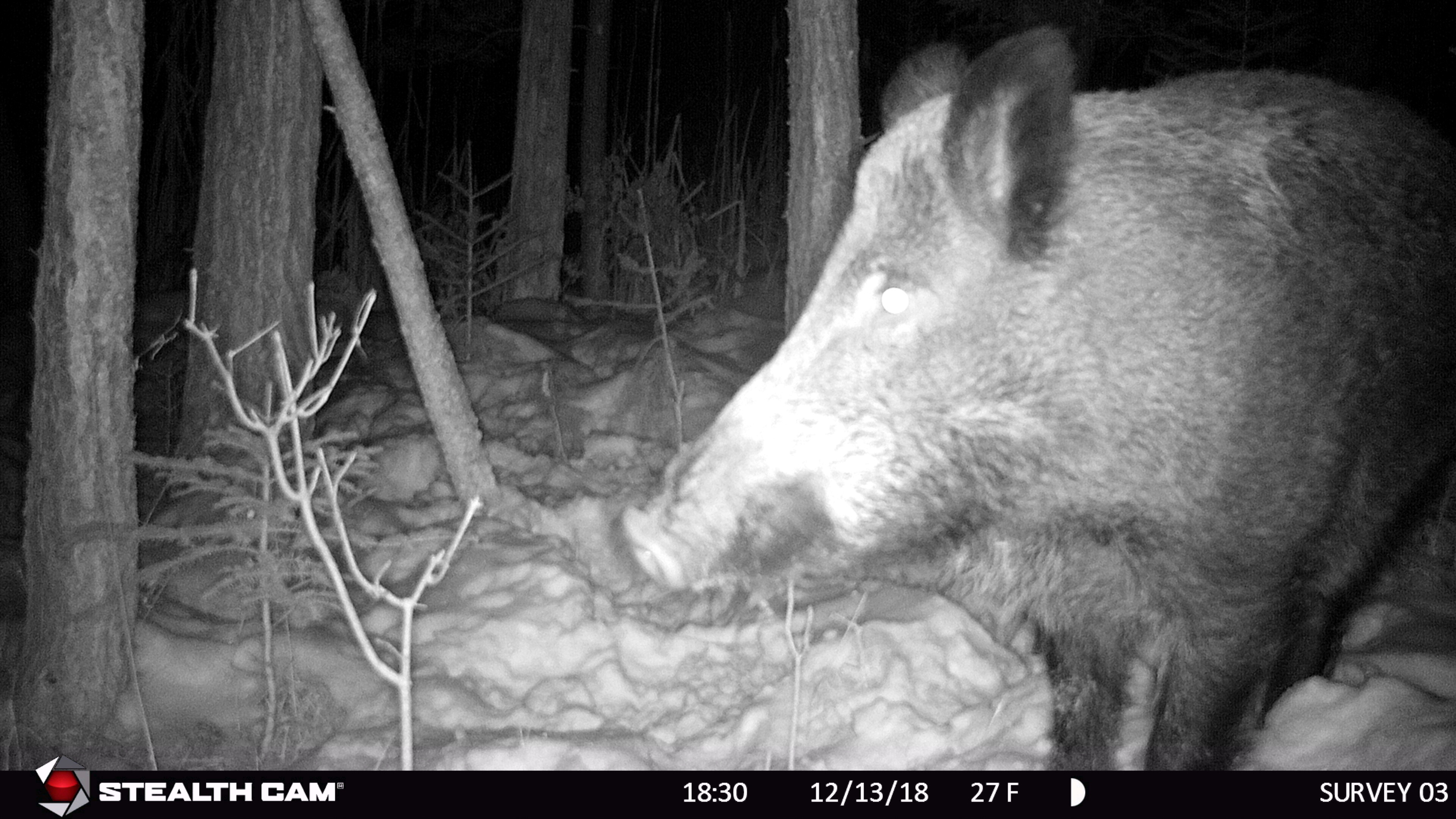
May 9, 2019 | Montpelier VT - On March 25th of this year, after many months of sightings, a single feral pig was shot and killed by USDA Wildlife Services in Lyndonville, VT. Subsequently the boar tested positive for pseudorabies virus infection, or PRV. The Vermont Agency of Agriculture, Food, and Markets (VAAFM) was notified of the positive PRV test result on April 29, 2019. At this time, Vermont is not known to have an established feral swine population.
Vermont has been certified free from PRV since October 1995. PRV is not related to rabies and does not affect humans; however, the disease is a threat to domestic swine. There is no treatment. PRV can cause abortions and stillbirths in adult swine and is nearly 100% fatal in young pigs. Pigs that survive the infection can shed the virus throughout their lives, spreading the disease and serving as a source of infection to their herd mates and other farms. The disease is known as “pseudorabies” because animals sometimes show neurological symptoms. Typically, feral swine are the reservoir for this illness which is transmitted through nose to nose contact. PRV can be fatal in other livestock species including cattle, sheep, and goats, as well as dogs and cats.
VAAFM is working with USDA Veterinary Services, USDA Wildlife Services, and the Vermont Fish & Wildlife Department to address this issue through continued monitoring for the presence of feral swine, assessment of the disease risk to domestic swine, and active on farm disease testing. VAAFM will be contacting swine owners located in Essex, Caledonia, and Orleans counties over the next few weeks. We encourage swine owners in these counties and anyone with information about a suspect pig or other herd animal to be displaying clinical signs consistent with PRV to contact VAAFM at: (802) 828-2421 or agr.animalhealth@vermont.gov.
To report a suspected feral swine, visit https://vtfishandwildlife.com/contact/contact-a-warden to find your local Vermont Game Warden, or contact USDA Wildlife Services at 1-800-472-2437.
Currently, officials have no knowledge of any other feral swine in the state of Vermont or the area where this pig was recovered. Multiple sightings were made through trail camera photos and analyzed to confirm it to be the same pig in each image, and the pig was always photographed alone. VAAFM asks any property owners and farmers who have experienced unusual damage in the greater Lyndonville area to report these occurrences to officials.
- Feral swine (Sus scrofa) in the United States are typically escaped domestic pigs, descendants of introduced European wild boar populations, or a hybrid of the two.
- Feral swine can be found from Florida to Washington at an estimated population of 5 million nationwide.
- Feral swine are not native to North America and have expanded their range from 17 to 39 states in the last 30 years.
- Since their introduction to North America, wild pigs have become one of the more serious wildlife problems in the United States. Nationwide feral swine annually cause an estimated 1.5 billion dollars in damage and can destroy as much as 1,000 acres per hour. They prey upon white-tailed deer fawns, wild turkeys, grouse, woodcock, other ground nesting birds and their eggs, insects, frogs, and salamanders. Feral swine will also out-compete native wildlife for food, such as acorns and beechnuts which are important and variable resources to Vermont wildlife.
- Along with property and wildlife destruction, feral swine can threaten the health of people, livestock and pets by transmitting as many as 30 pathogens and 37 parasites. Of concern are Brucellosis, Pseudorabies, Leptospirosis and Trichinosis, which pose human and/or livestock health risks.
For more information, see:
- Background on the Animal and Plant Health Inspection Service (APHIS) Wildlife Services (WS) feral swine program
- Info on Pseudorabies in Swine
Feral swine should be reported to the VAAFM or to USDA Wildlife Services at 1-800-472-2437 or (802) 223-8690.
For questions please contact:
Shelley Mehlenbacher, DVM, MPH, Dipl. ACVPM
Assistant State Veterinarian | 802-828-2421 | shelley.mehlenbacher@vermont.gov
Vermont Agency of Agriculture, Food & Markets
Scott Darling
Wildlife Program Manager | Vermont Fish & Wildlife Department - Agency of Natural Resources
802-786-3862 | Scott.Darling@vermont.gov
